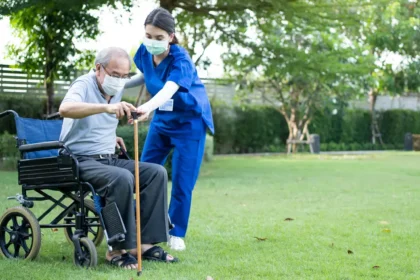Insomnia affects more than just sleep; it impacts focus, mood, and overall health. Struggling to fall asleep or stay asleep can quickly become a cycle of fatigue and frustration if left unaddressed. Adopting helpful practices can improve sleep quality and restore balance to your routine. Here are key practices for combating insomnia:
Establish Healthy Sleep Habits
Good sleep habits form the foundation for beating insomnia. Contemplate incorporating the following strategies to improve your sleep:
- Go to bed and wake up at the same time every day, including weekends, to align with your internal clock and establish a consistent sleep schedule.
- Avoid taking naps during the day, as they can interfere with your ability to fall asleep at night.
- Create a sleep-friendly bedroom environment by keeping it dark, quiet, and at a cool temperature. Use tools like blackout curtains, eye masks, or earplugs if necessary.
- Remove electronic devices such as phones, tablets, and TVs from your bedroom.
- Develop a calming bedtime routine at least 30 minutes before you sleep to signal to your body that it is time to wind down.
By adopting these habits, you can improve your sleep quality and better manage insomnia symptoms.
Manage Stress and Mental Health
Stress and worry are major causes of insomnia. When your mind races with thoughts about work, relationships, or daily problems, it becomes very hard to fall asleep. Try relaxation techniques before bedtime. Deep breathing exercises help slow down your heart rate and calm your mind. Progressive muscle relaxation involves tensing and then releasing different muscle groups in your body. These methods help your body prepare for sleep.
Write down your worries in a journal before bed. This practice helps clear your mind of racing thoughts. You can also create a to-do list for the next day to help alleviate worries about things you need to remember. Mental health conditions like anxiety and depression often go hand in hand with insomnia, so treating these underlying issues is fundamental for better sleep.
Explore Medical and Professional Support
Sometimes, insomnia requires professional treatment to get better. If you’ve tried improving your sleep habits but still have trouble sleeping, it may be time to talk to a psychiatrist. They can help identify underlying medical conditions or mental health issues that may be causing your sleep problems.
A psychiatrist may recommend Cognitive Behavioral Therapy for Insomnia (CBT-I), which is a highly effective treatment. This type of therapy helps you change thoughts and behaviors that interfere with sleep. A trained therapist can teach you specific techniques to overcome insomnia without medication.
Medical professionals may also recommend sleep medications for short-term use or when other treatments haven’t worked. These should always be used under the supervision of a healthcare professional. Some people with insomnia related to depression or anxiety may benefit from newer treatments like ketamine therapy, which requires careful medical oversight.
Get Help for Insomnia Today
Fighting insomnia requires a complete approach that addresses sleep habits, stress management, and lifestyle choices. Begin with basic sleep hygiene practices and stress-reduction techniques. Make sure your diet and exercise habits promote good sleep. If self-help strategies aren’t enough, don’t hesitate to seek professional help. Mental health professionals can provide personalized treatment plans that address your specific needs and circumstances. Contact a trusted psychiatrist near you to get help for insomnia today.








